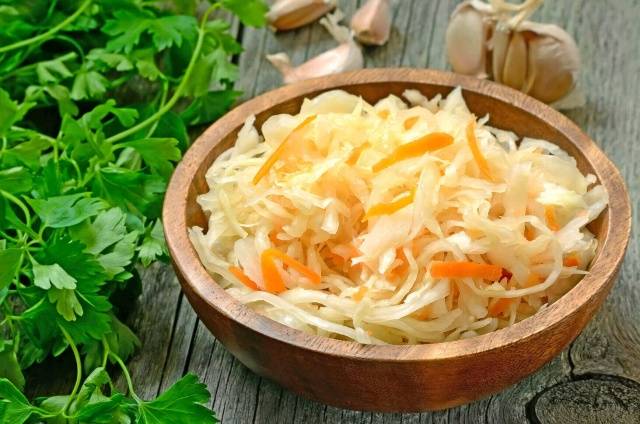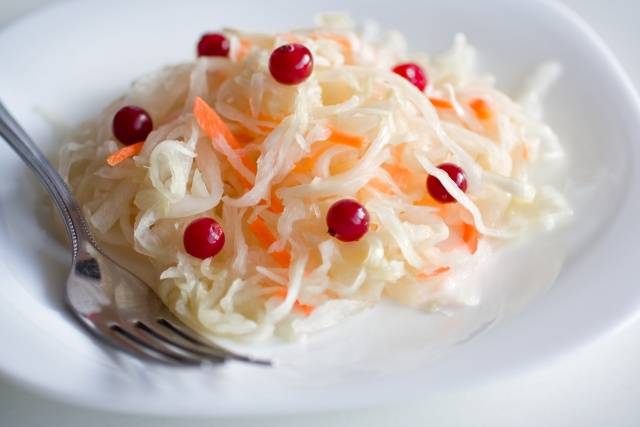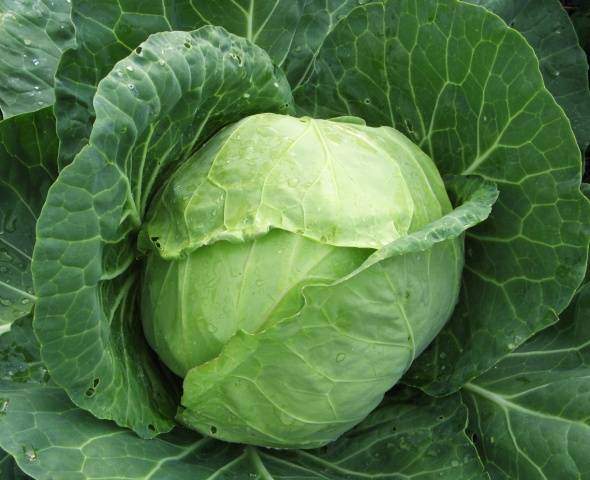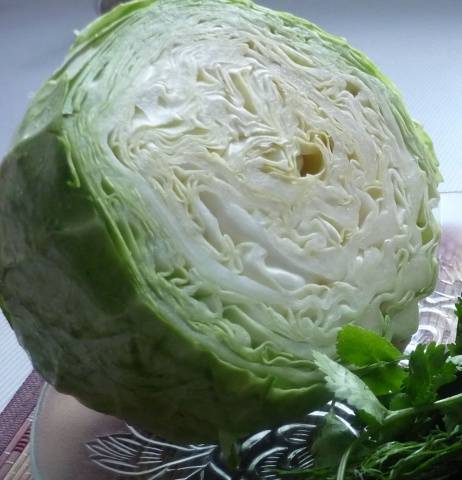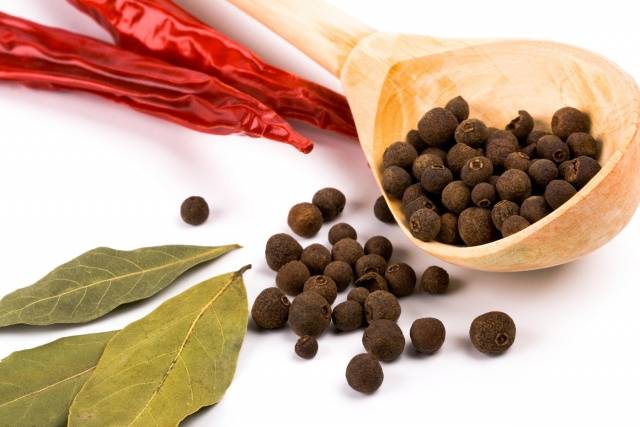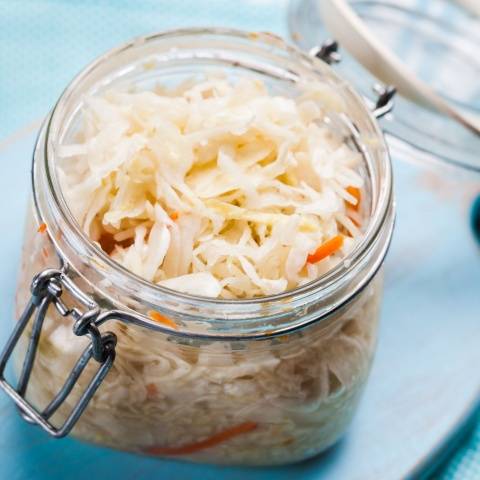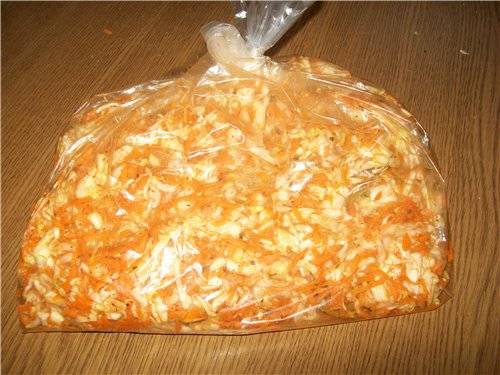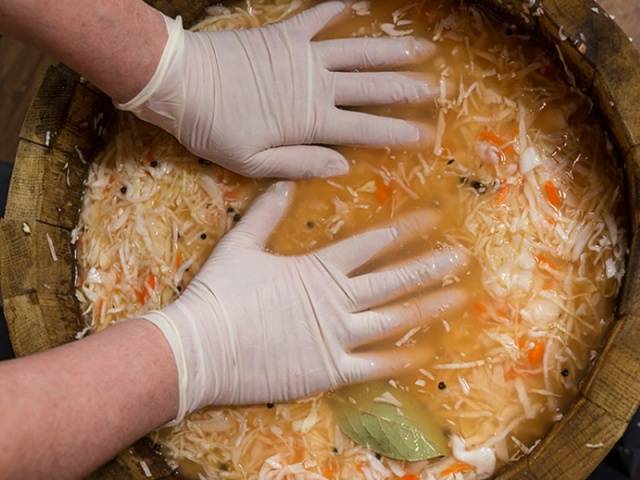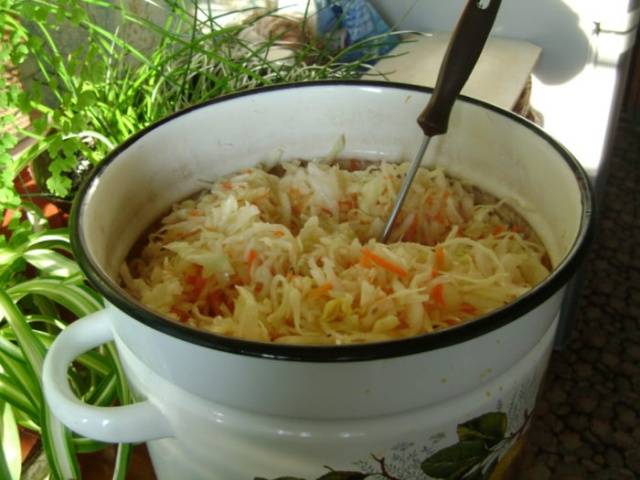Content
Sauerkraut is a popular homemade variety. To get them, you need to choose a recipe, variety, spices and containers. One of the main questions that arises during the cooking process is whether it is possible to ferment cabbage in a plastic bucket? Sourdough is carried out only in containers of a certain type. Otherwise, it will negatively affect the taste of the dish.
The benefits of sauerkraut
Sauerkraut is fermented. To prepare it, you need to chop the head of cabbage and grate the carrots. Many recipes suggest using peppers, apples, beets, or cranberries.
After cutting, the vegetables are mixed with salt, sugar, allspice, bay leaves and other spices are added to taste.
Sauerkraut contains vitamin C, which is known for its antioxidant properties. The absence of heat treatment allows you to completely preserve this useful element in vegetables, as well as vitamins K, group B, potassium, calcium, iron, phosphorus, zinc.
After fermentation, acetic and lactic acid is formed in cabbage. The calorie content of the snack is 27 kcal per 0.1 kg. Therefore, it is included in the dietary menu.
You can eat cabbage if you have an ulcer and liver disease. And her brine is a cough remedy.
Hypertensive patients need to be careful to include pickled vegetables in their diet due to the high salt content. Then the recipes are selected where the minimum amount is required.
How to ferment cabbage
To preserve the maximum of nutrients in vegetables, you need to ferment them correctly. In this case, several nuances are taken into account: the choice of variety, seasonings and containers. Particular attention is paid to the selection of containers for fermentation and further storage blanks.
Variety selection
No less relevant is the question of which cabbage to ferment. Middle and late ripening varieties are best suited for this purpose. Such heads of cabbage are distinguished by a high density, and when salted, a crispy and firm snack is obtained. They ripen in the middle of autumn, so this is the best time for fermentation.
Large heads of cabbage are chosen for the starter culture to minimize waste. However, several small heads of cabbage can be used. When choosing cabbage, you need to pay attention to the presence of green leaves. If they are absent, then there is a high probability that the vegetables were frozen. As a result, she lost her presentation, and the seller removed these leaves.
White-headed varieties are best suited for fermentation, which turn out to be sweetish in taste. If red-headed varieties are used, then the appetizer takes on a bitter aftertaste. The addition of sugar will help correct the situation.
The most suitable varieties for pickling are Aros, Slava, Morozko, etc. It is quite simple to identify late heads of cabbage: they are large in size and high in density, have coarse and thick leaves.
Selection of condiments and additives
The main fermentation aid is salt. If vegetables are fermented without salt, then spices are used. Such an appetizer has a specific taste and is not stored for a long time.
If the salt is not used enough, the vegetables become loose. An excess of salt also negatively affects the taste of the blanks and increases the duration of the entire process.Cabbage is fermented using coarse rock salt.
To speed up the fermentation process, sugar is added to the blanks. With its help, vegetables acquire a mild flavor. If you overdo it with sugar, they will become too soft.
Bay leaves and allspice help improve the taste of sauerkraut. These ingredients are found in almost every recipe.
Other spices can be added to the cabbage to taste:
- caraway;
- anise;
- spicy pepper;
- cloves;
- Dill seeds.
Various vegetables, berries, fruits and herbs are used as additives:
- bell pepper;
- celery;
- cranberry;
- lingonberry;
- apples;
- mushrooms;
- fresh cilantro and dill.
Use of containers
Initially, cabbage was fermented in wooden barrels... The most delicious vegetables are obtained in oak containers. At home, it is not always possible to place wooden tubs.
It is best to choose a container made of hardwood (birch, oak, linden). If you ferment in a coniferous dish, then you need to fill it with cold water for 25 days. The water is changed every 5 days. This procedure will eliminate resin and tannins from the wood.
Glassware can replace wooden containers. Pickling can be done directly in glass jars. To do this, the prepared vegetables are placed in a three-liter jar, where the fermentation process takes place.
The use of three-liter cans greatly simplifies the cooking process. After the end of fermentation, they are immediately removed for storage, without transferring vegetables to another container. In this way, you can ferment cabbage throughout the year. When the blanks are finished, the next jar is prepared.
An alternative option is to use enamel cookware. Before use, it is checked for chips and cracks. Enamel pots, buckets and barrels are suitable for fermentation.
What vegetables can not be fermented with? It is not recommended to use containers of the following types:
- steel;
- aluminum.
During fermentation, lactic acid is released, after which the brine interacts with the metal surface. As a result, the blanks acquire an unpleasant aftertaste. This chemical reaction can lead to the formation of harmful substances. Therefore, it is strictly forbidden to ferment cabbage in an aluminum dish.
It is not recommended to store workpieces in aluminum containers. This metal quickly interacts with acids, therefore, with prolonged contact, the content of harmful compounds increases.
Metal containers can be used for fermentation if the vegetables do not come into contact with their surface. To do this, cabbage is first placed in a strong plastic bag, which is then placed in an aluminum container.
There is no single answer to the question "Is it possible to ferment cabbage in a plastic bucket?" It is possible to use a plastic barrel for sourdough, however, this method will not improve the taste of the preforms. Only food grade plastic is suitable for fermentation. The type of application is indicated on the dishes themselves or on the labels.
When fermented in plastic containers, vegetables can absorb the smell. Poor quality plastic buckets can contain harmful chemicals. Cabbage pickled this way can taste strange. If no other option is available, the sliced vegetables are first placed in a plastic bag, then in a plastic bucket.
Fermentation process
After placing the cabbage in the container, the load is placed on top. Its functions will be performed by a jar filled with water, or a stone. It is better to put oppression on a wide plate. If fermentation is made in jars, then they are not covered with lids.
During fermentation, juice is released from the vegetables. Therefore, a deep plate or saucepan must be placed under the container.
Sauerkraut takes place at a temperature of 17-22 ° C. This process takes from one hour to several days, depending on the recipe.
At lower temperatures, the process will take longer and may stop altogether. High temperatures will spoil vegetables and become too soft.
After 3 days, the vegetable mass settles, and the intensity of juice secretion will decrease. This indicates the readiness of the dish. Before sending the blanks for permanent storage, you need to taste them. Fresh vegetables are left to ferment for a few more days.
If there is a sour taste, the cabbage is moved to a basement, refrigerator or other cool place.
Secrets of delicious cabbage
To make the cabbage crisp, use the following tricks:
- after adding salt, you do not need to crush the chopped vegetables, it is enough to gently mix all the components;
- the cabbage is cut into medium-sized pieces;
- so that the vegetables do not soften, they add horseradish root or oak bark, which contain tannins;
- first, the cabbage is fermented at room temperature, then the container is moved to a room where the temperature is 0 ° C;
- when placing vegetables in a container, you need to tamp them well, then put the load on top;
- it is not recommended to freeze vegetables before use.
The following actions will help improve the taste of pickled vegetables:
- in the process of fermentation, you need to remove the foam;
- regularly pierce vegetables with a wooden stick (for uniform fermentation and release of gases);
- add cucumber pickle or sour fruit juice.
The shelf life of workpieces can be extended if a number of conditions are met:
- cans or other containers are left in a cool place at a temperature of + 1 ° C;
- Using a cloth soaked in alcohol to cover the cabbage will help prevent mold.
Conclusion
Sauerkraut is a healthy snack and part of other dishes. Before getting blanks for the winter, you need to figure out whether it is possible to ferment cabbage in an aluminum dish. Metal containers are not suitable for fermentation. It is best to use wooden, glass or clay containers. It is not recommended to use plastic dishes for sourdough and further storage. Previously, you can put vegetables in a plastic bag, and then lower it in a plastic or metal bucket.
